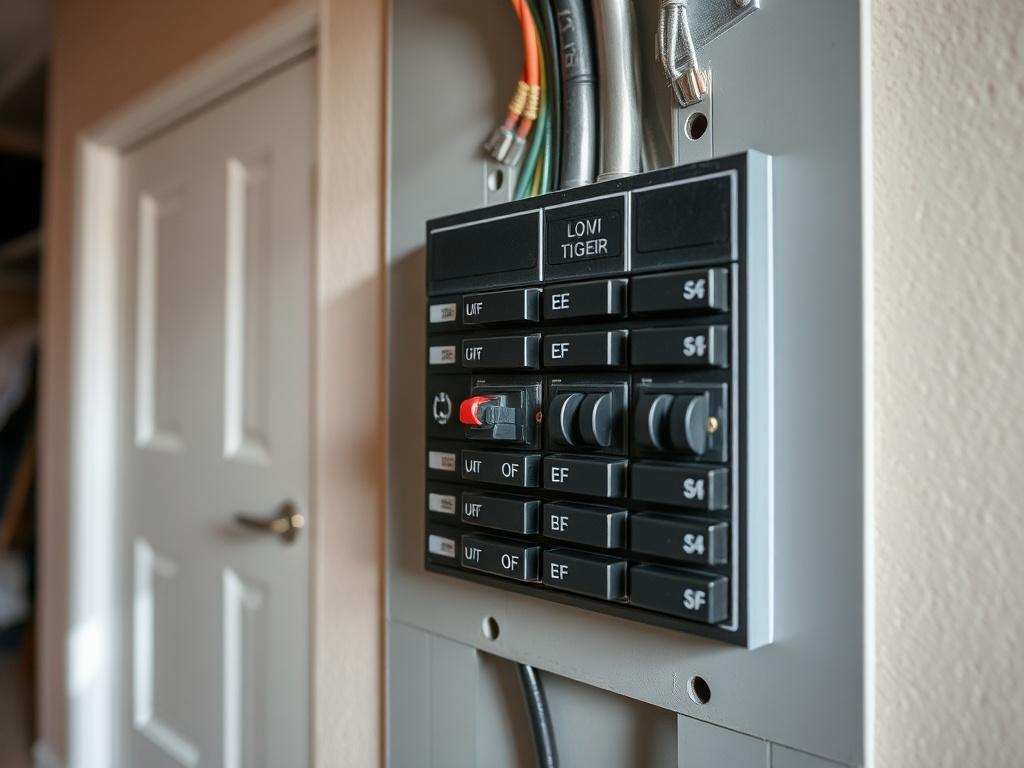
Are you tired of dealing with a breaker that keeps tripping in your Omaha home? You're not alone. Many homeowners face this frustrating issue, often without knowing the underlying causes or how to effectively address them. Whether it's an overloaded circuit, faulty wiring, or a simple appliance malfunction, understanding these common triggers is crucial for maintaining a safe and functional electrical system. In this blog post, we’ll guide you through essential troubleshooting steps, empowering you to take charge of your home’s electrical health while prioritizing safety.
Frequent breaker trips can disrupt daily life and lead to bigger problems if not addressed promptly. By following our straightforward advice, you’ll learn how to identify symptoms and tackle potential issues head-on. From simple preventive measures to recognizing when it’s time to call in a professional electrician, we’ll ensure you have the knowledge to navigate these challenges effectively. Ready to troubleshoot like a pro? Let’s get started on understanding what Omaha homeowners need to check!
Understanding the common causes of breaker trips in Omaha homes
Breaker trips can disrupt your daily life, often leaving homeowners puzzled about the underlying issues. In Omaha, several common causes can lead to frequent breaker trips. One primary culprit is overloaded circuits, which occur when too many devices draw power from the same circuit. This situation often arises in kitchens and living rooms where appliances and electronics are abundant. Another significant cause is short circuits, which happen when the hot wire touches the neutral wire, creating an immediate surge of electricity that trips the breaker. Additionally, ground faults can also trigger breaker trips; these occur when live wires come into contact with the ground or any conductive surface, posing both a safety hazard and operational disruption.
While these causes can seem daunting, knowing them is the first step toward effective troubleshooting. In Omaha, changes in weather can exacerbate electrical issues, with winter storms causing ice build-up that interferes with outdoor wiring. Old or damaged wiring and circuit breakers can also present problems, as these components may not handle the electrical load required for modern homes. Therefore, understanding these common causes equips Omaha homeowners with the knowledge needed to tackle the problem effectively. Recognizing the signs early can prevent further complications and save both time and money in the long run.
Essential troubleshooting steps for homeowners to take
When dealing with a tripping breaker, the first step for Omaha homeowners is to identify the circuit that keeps tripping. Begin by checking the appliances and devices connected to that circuit. Unplug any items that draw significant power, such as heaters or large kitchen appliances, to see if the breaker remains stable. This process helps narrow down the potential culprits. Homeowners should also inspect for any visible signs of damage or frayed wires in outlets and cords, as these could indicate a short circuit or other electrical issues that warrant further investigation.
Next, reset the breaker and observe whether it trips again. If it does, try to determine if any specific occasion triggers the trip—such as using multiple devices simultaneously. This information can be valuable when assessing the issue. Homeowners should also check for any moisture in electrical outlets, especially in areas prone to humidity. In such cases, drying out the area might resolve the issue temporarily. However, if these steps lead to not resolving the problem, it may indicate a deeper issue within the electrical system that requires professional attention. Always prioritize safety and never attempt repairs when unsure, as electrical systems can be complex and hazardous.
When to call in a professional electrician for safety and peace of mind
Homeowners should recognize when a breaker trip exceeds their troubleshooting capabilities. If the breaker continues to trip after checking appliances and circuits, it might indicate an underlying electrical issue such as faulty wiring, overloaded circuits, or a malfunctioning breaker. Signs like melting plastic, burnt smells, or strange noises from your electrical panel signal that you should urgently seek professional help. Avoid the temptation to reset the breaker repeatedly, as this can lead to further issues or even pose a fire hazard.
A licensed electrician brings expertise and tools to diagnose more complex problems accurately. They can safely inspect and identify issues that may not be visible to the untrained eye, including ground faults or short circuits. When dealing with electrical systems, prioritizing safety is crucial. If you feel uncertain or uncomfortable during your troubleshooting process, calling in a professional ensures that you address the problem effectively and protect your home and family from potential dangers.
Talk to one of our experts — for free.
Enter your email and get virtual support from a licensed pro, no strings attached.